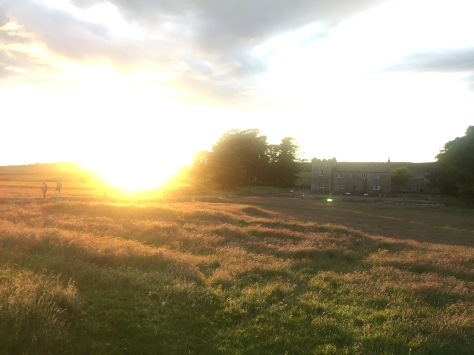It’s hard to believe how quickly things move. I can go back on this site and read some of the things on my mind during my PGCE year, and see some of my deleted posts from my (very trying) NQT year. The frequency has dropped as the teaching has increased but, here we are, September 2017 and my third full year of teaching ahead. This is the first time I’ll have gone from one school year to the next at the same school, which has given me a welcome sense of familiarity as I plan for the year – I’m not nervous about not knowing where the loos are, or what the behaviour policy is, or if the department are nice. My department’s awesome, and it will be nice to reconnect after a summer of relaxing and reflecting. The summer has given me the space to think about how the last year has gone, what things I thought went well or where I need to improve, and how to go about it. So here’s my rough thoughts for the year ahead:
Explanations
I feel like, with the help of my team and the wider history network in the trust, our curriculum is really coming along and I’m more knowledgeable about planning and focusing on the ‘main thing’ than ever. Our KS3 is developing much like the Y7 lessons as outlined in the last post – ‘reading’ lessons and ‘writing’ lessons alternating, with challenging texts and regular practice. There will be new assessment principles put into place this year which build a lot on the work that I’ve seen/read from people like Daisy Christodoulou and Michael Fordham, and as a subject we’re really moving in a good direction. Stability and continuity within the department is great too.
On a personal level, the area I feel I need to focus on is in explanation. Ben Newmark’s videos have been a reference point for this, and the excellent book, Making Every Lesson Count. I want to be able to be more clear, more direct and use better analogies to help get across some of these complicated concepts. I think I’m ok at it now, but thats just … ok. There have been times I know that I’ve tried to explain something and I can tell, in the moment, I’ve lost them, or I’ve overcomplicated it, or I’m not focusing on the key part and its taken too long as I double back. Knowing what questions or problems there have been in previous lessons, I want to be able to prepare for these by preparing and knowing exactly how to explain a concept or an answer or whatever needed, clearly and concisely. So that’s a personal focus.
Behaviour
I don’t mean behaviour in the usual sense – managing the classroom, sanctions, building a good working environment. This is vital and something thats a continual work in progress. But I’ve been thinking a lot about three characteristics lately – patience, humility and kindness. On a personal level, I want to be able to model these and try to encourage them in my students. There are times when, both students and teachers, we’re often quick to snap or talk back, to rush instead of to take our time, and I want to be more patient in some of my interactions and to encourage them to be patient with their work too, and with how they deal with each other, to not rush to judgements, to not arrogantly wade in or try to show off. This goes for me too, trying to resist the temptation for posturing twitter comments or complacency in my work, planning, delivery, and so on. I think this is somewhere we all fail, from time to time. I know I do and I hate it when I look back at things I’ve said that reek of arrogance or superiority. I want to better model the behaviour that I value the most, and I want to find a way to encourage students to demonstrate kindness with action (though I’m not sure how, yet. Charity?), and kindness towards each other in the class.
Culture
With our curriculum coming along, I want to help the department in developing a wider culture. We have a fantastic rapport with our students, who regularly come back after school just to finish work, chat, do some random revision and more. I’m proud that our department is one where they feel completely comfortable and welcome. I’d like to help channel that into other things – helping with more trips (we have a trip to Rome this year), or running something extra-curricular in humanities, or perhaps something charity based. Again, I’m not sure of the specifics – its just been part of my thinking.
Getting better is hard work and a lot of time I’ll be tired. At many points I’ll be more focused on the minutiae of specific classes, delivering new units and supporting our first cohort through the new GCSE, and personal development takes a back seat. But if, come next July, I’m a bit better at these three things, and all else is in hand, I’ll be happy.



